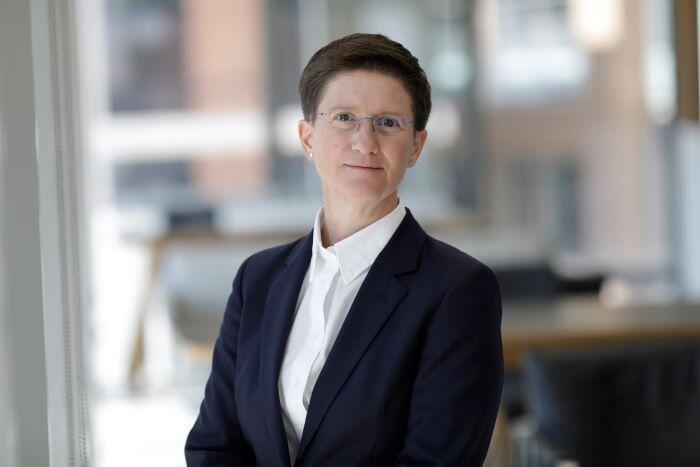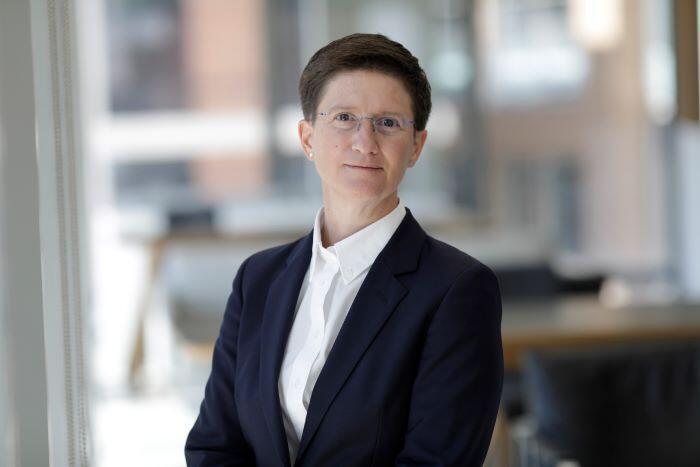
“Israel is finding a phenomenal support base from the UK domestic investor base.”
London Stock Exchange CEO Julia Hoggett spoke to CTech ahead of Calcalist and Bank Leumi’s Mind The Tech conference held every year in the UK capital.
“If you look at some of the challenges that we're going to face for the next hundred years, it is very much about how we support financing the risk capital into companies around the world that are really focused on solving society's problems for the next generations,” said London Stock Exchange (LSE) CEO Julia Hoggett. “And the tech sector in Israel is an exemplar of doing exactly that.”
Hoggett was speaking to CTech ahead of Mind The Tech, the flagship conference hosted by Calcalist and Bank Leumi that brings together techies, business leaders, entrepreneurs, and politicians from Israel and around the world. Now in London for the sixth year, the conference is focused on supporting and promoting Israeli high-tech - something more important now than ever given Israel’s 18 months of internal protests at the proposed judicial reform and the global consequences of the October 7 massacre committed by Hamas.
There are 22 Israeli companies currently listed on the LSE with a total market capitalization of $11.5 billion. One holding company, Plus500 initially listed on AIM in 2013 and transferred to the Main Market five years later. Since its IPO it has returned to market six times raising a total of £633 million ($861M). Other companies with histories on the LSE include Windward, Playtech, and XLMedia, respectively.
Hoggett expressed that even though the London Stock Exchange is in its fourth century, “we are quite nimble stuff.” Describing the LSE as a “300-year-old fintech”, she highlighted how the exchange uses cutting-edge technology to keep up with the global demand and make itself attractive to companies and investors around the world.
Today, the London Stock Exchange is Europe’s most active equity market, with $24 billion raised in London through IPOs and FOs in 2024 so far. This makes it more than three times what was raised in Europe’s next biggest exchange in Frankfurt. According to data provided by the London Stock Exchange, London proportionately has more international companies than any other major exchange at 36%, followed by the Nasdaq (20%) and Singapore (18%).
“London is unusual in that 40% of our investor base is from North America,” she explained, sharing that 60% of the investor base who invests on the LSE is international, compared to 15-18% in the U.S. “When you look at who actually buys the Israeli companies, disproportionately, it's actually UK investors. So Israel is finding a phenomenal support base from the UK domestic investor base, while simultaneously having access to exactly the same people that you get access to if you listed in New York or in Nasdaq.”
This year, Mind The Tech will focus on the challenges facing the tech sector both locally and globally, including political uncertainties and the implications of the global recession. During the conference, Israeli and British tech will focus on innovation as a means for economic resilience during periods of uncertainty. At the event, Hoggett will join the stage with Calcalist’s Yarden Rozanski for a fireside chat that will explore how global tech companies can connect to London’s ‘financial heart’. According to Hoggett, of the companies that IPOed between 2019 and 2024, 49% of them came back to the market in the UK to raise follow-on capital compared to 28% on the Nasdaq.
Israeli companies often look at New York on the U.S.’s East Coast as a convenient location to grow their business, but looking at London can give them more attractive timezones, markets, and investors that challenge the Israeli fascination with America. “London is providing that role of genuinely making sure its services work not for the way the financial services industry needs, but for what founders and entrepreneurs need to meet their requirements,” she concluded. “I think the track record we've already proven with Israeli companies proves that we're doing just that. We want to do more of it.”















